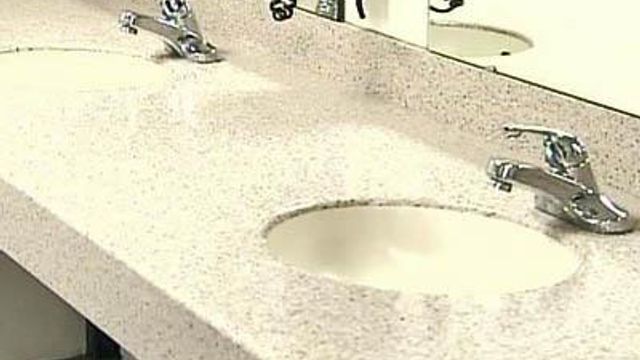Meeker: Corps to Again Cut Releases From Falls Lake
In announcing a reduction of water released from Falls Lake into the Neuse River, Raleigh Mayor Charles Meeker also called for spot checks of local businesses to see if they're conserving water.
Posted — UpdatedMeeker also said city inspectors could begin visiting area businesses to determine whether they have installed low-flow faucets and other measures called for to conserve water.
The Corps, which manages Falls Lake, two weeks ago cut flows from the lake into the river by about 3 million gallons a day.
Raleigh officials had asked that the flow be reduced by about another 14 million gallons a day to conserve as much of the water supply in the lake as possible. Falls Lake is the primary water source for Raleigh and six Wake County towns that are part of the municipal water system.
"The drought is by no means over, but this is helpful to Falls Lake," Meeker said.
Meeker said the reduction was guaranteed only through the end of March – keeping 500 million gallons in the lake – although the Corps could extend it for up to a year. U.S. Rep. David Price's office said the state's representatives expect the reduced flow to go on for at least 12 months.
Officials will review water levels in the Neuse River at the beginning of each month.
The Corps has to keep flows in the Neuse River within a specific range to maintain water quality downstream for communities that use the river as a drinking water source.
Water flow in the Neuse River is about twice the target level, Meeker said, so cutting releases from Falls Lake won't have an immediate impact downstream.
"We're hopeful this is the start of a pattern where only the amount of water that needs to be released from Falls Lake will be released instead of a set figure," he said.
Goldsboro officials support releasing no more water than necessary from Falls Lake, said Karen Brashear, the city's public utilities director. If flows in the Neuse River become insufficient in the coming months, Goldsboro officials would discuss increasing releases from the lake with Corps managers, she said.
"Nothing is a yes or no answer," Brashear said. "We've never experienced anything like this in North Carolina."
Since Raleigh imposed Stage 2 restrictions on Feb. 15, municipal water use has fallen about 7 to 8 percent, from about 40 million gallons a day to about 37 million gallons a day, Meeker said. Under Stage 2, drinking water cannot be used for outdoor watering or pressure-washing, and dozens of car washes were closed.
The City Council in January urged all local residents and businesses to install low-flow shower heads, faucets and other devices by March 1 to reduce water consumption. Meeker said Monday that he plans to ask the City Council to allow inspectors to make spot checks on about a dozen local businesses in the coming weeks to check whether they have heeded the call.
The voluntary inspections would focus on office buildings, apartment complexes, hotels and fitness centers, Meeker said, because the water users in those facilities aren't employees of the owner paying the water bill.
"If they refuse to let us inspect, we can infer what the situation is," he said.
The proposal was immediately panned by some local business owners.
C.J. Bouchard, who owns four Planet Fitness health clubs in the area, said his clubs have systems that heat water so members don't have to let the showers run to warm them up. But he's reluctant to incur the expense of installing low-flow devices.
"We haven't budgeted for all of that," Bouchard said. "I don't think it's really necessary for them to come in and do this. I would feel totally uncomfortable."
None of five businesses in a Rock Quarry Road strip mall that WRAL checked with on Monday had installed low-flow devices.
If the inspections find widespread noncompliance with the move to low-flow devices, the City Council might need to make the move mandatory, Meeker said.
"Once it becomes mandatory, what you'll have is one big fine and then the water will be turned off. That's the way Stage 2 is," he said.
• Credits
Copyright 2024 by Capitol Broadcasting Company. All rights reserved. This material may not be published, broadcast, rewritten or redistributed.






